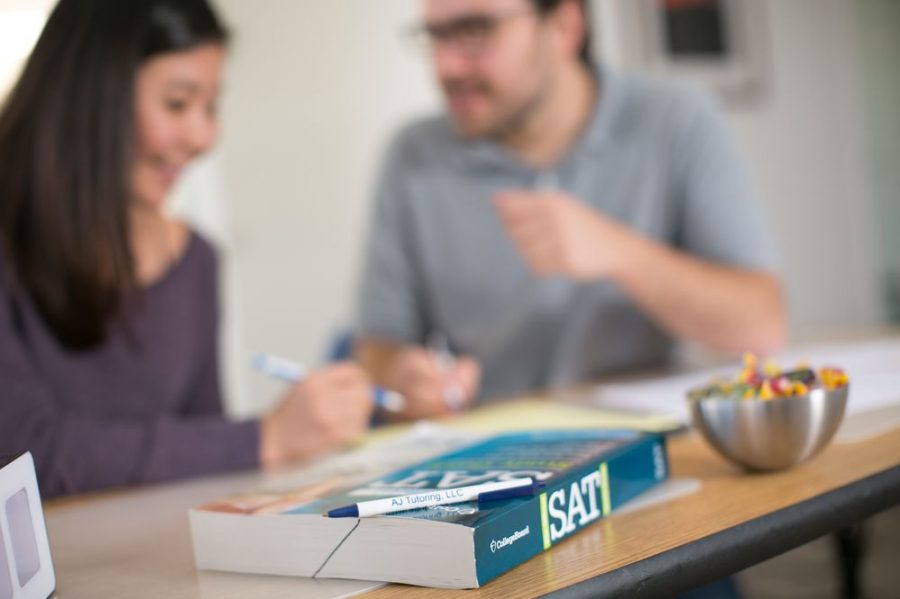Alice Bolandhemat While every student is a member of the Latin community, each one of us is vastly different. However, we all share one common desire: success. Going back to our individuality, we all choose different paths to achieve the success which we yearn for in school. I, for one, rely too heavily on brightly colored flashcards and late night FaceTimes with my older sister practically begging for math help. Some meet with their teachers daily. Some familiarize themselves with the soothing voice in Kahn Academy videos. Others utilize private tutors. When a student explains a solution using a different method than we were taught in class, the teacher often questions their source. The student may reply “my tutor explained it to me.” In many schools, that response may receive eye rolls or whispers saying, “that’s not fair.” However, at Latin, it is not uncommon for a student to have a private tutor with whom they meet at least once a week. In asking the question “why is private tutoring so popular amongst Latin students?” the answer I first arrived at was rather obvious: many Latin families can afford it. It’s no secret that tutors from companies like Academic Approach or BEC are not inexpensive. Additionally, if you meet with one more than once a week, the price only continues to rise. Ms. Wetherbee, the test prep teacher in the upper school is a former private tutor herself. “These companies want to make money off of you,” she said. “Often times, they will make the student think that they need more help than they actually do. They instill a sort of fear in the family that causes them to pay for more and more tutoring,” she continued. Ms. Wetherbee specializes in standardized testing, which is the area that perhaps acquires the most private tutoring. “Latin families are already paying for tuition, so we introduced the test prep class as a more equitable option than additional tutoring. We have practice tests to simulate the feeling of being in the testing room. We pretty much offer everything in the class that a private tutor does, but some students will still choose to use one anyway,” said Ms. Wetherbee. When asked why she believes that is the case, she responded by saying, “at the end of the day, [private tutoring] is something to fall back on for many students. But in some cases, extra help is necessary, and I completely understand those cases.” While monetary reasons may very well be the answer to my original question of “why is private tutoring so popular amongst Latin students?” there may be another answer, one that is even more of a sore subject than finances. This answer goes back to my very first statement: we all wish to succeed. To succeed, many of us believe that we must first enroll in rigorous courses, which to many means all of the honors and APs that are offered here at Latin. As a result, students tend to fall behind in their schoolwork, but the pressure to receive perfect grades still remains. Rather than admitting that we cannot handle this pressure, some tend to suppress their struggle and refrain from notifying their teachers. At times it can be awkward and embarrassing to bring your teacher the add-drop form saying “I cannot handle this class. Would you mind signing this?” Some like the way “honors” look on their report card. This is where private tutors are called upon. After researching the cause of private tutoring prevalence in Latin, I conclude my findings with not a definitive answer, but instead with another question. In this day and age, with the pressure to receive all A’s for the sake of college, will its prevalence only continue to rise? Or will private tutoring become a thing of the past?]]>
Categories:
The Truth Behind the Private Tutoring Craze
September 6, 2018
2
0

















































valencia.fellows • Sep 14, 2018 at 5:46 am
Alice, thank you so much for writing this article. I hope parents, like me, and students alike have the opportunity to read it. Excellent job!
epleshette • Sep 11, 2018 at 11:07 am
There are just so many things to unpack in this article, including the continued emphasis on grades over learning or rigor over engagement. Sadly, I think students are potentially looking at the college admissions landscape from a distorted lens and if we could only debunk some of these myths earlier, students might actually have a little more free time and families might save a little more money.